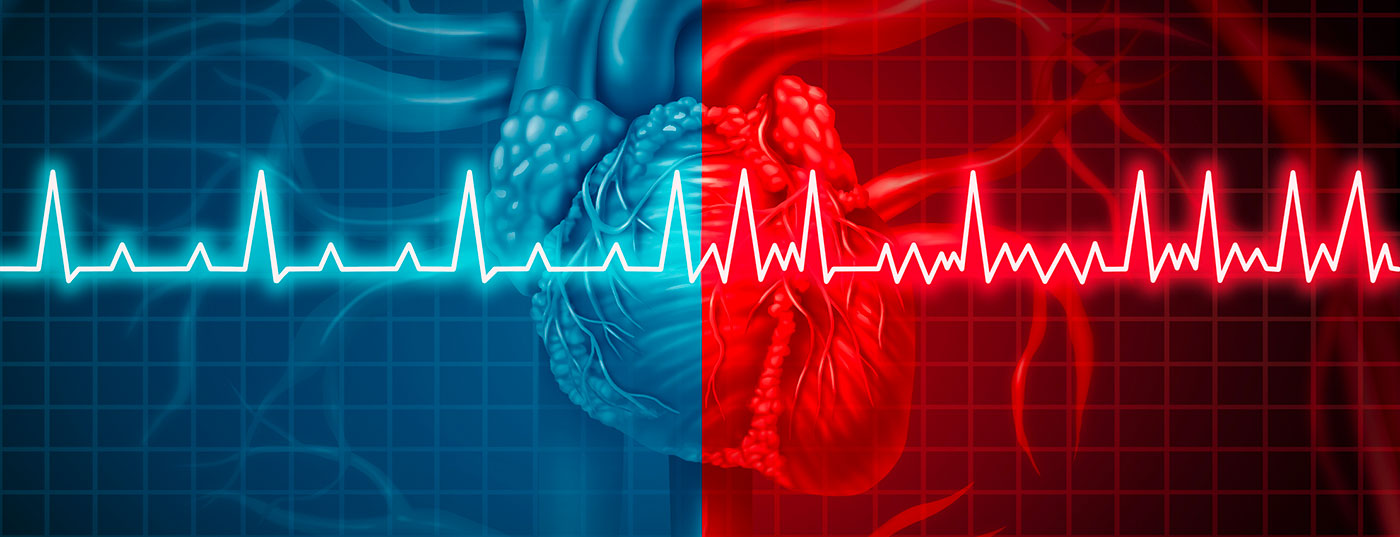For many people, the heart gets out of sync. Atrial fibrillation is one of the most common forms of cardiac arrhythmia and should be treated promptly to minimize the risk of stroke. To detect these arrhythmias, more and more technical possibilities are finding their way to the patient. An effective and individual therapy setting in the adequate dosage then supports patient safety.
According to current guidelines, atrial fibrillation can be detected not only by automatic blood pressure devices, but also by conventional pulse measurement or single-lead ECGs and smartphone apps. Sensitivity is very high for all methods, ranging from 87 to 100%. Specificity, on the other hand, varies widely between 70 and 90%, reported Prof. Jens Eckstein, MD, Basel. Back in 2017, atrial fibrillation screening technology via smartphones or smartwatches was included in international guidelines. Last year, the 30-second single-lead ECG was newly established as sufficient not only for screening but also for the diagnosis of atrial fibrillation.
The expert now raised the question of how long, or how frequently, a patient should fibrillate to qualify for oral anticoagulation. This is where the CHA2DS2-VASc score comes into play. Values of 0 in men and 1 in women do not require anticoagulation. With a point score of 2 in men and 3 in women, the evidence for anticoagulation is established. In a Swedish cohort, it was shown that then the net benefit was significant with treatment with NOAKs compared with no anticoagulation. For example, from a CHA2DS2-VASc score of 5, the risk of stroke per year is 8.4%, the risk of stroke systemic embolism with NOAK is 1.3%, and the risk of bleeding is 1.4%. Accordingly, the advantage of the therapy clearly outweighs the disadvantage, Eckstein said. Accordingly, the 2020 ESC Guidelines also recommend NOAKs equally but generally in preference to VKA, except in moderate/severe mitral stenosis and mechanical valves.
Safety for patients at risk
Patients with atrial fibrillation should be protected not only from stroke but also from bleeding. This also includes the correct dosage. A retrospective cohort evaluation of nearly 15 000 patients found that underdosing did not significantly reduce the risk of bleeding. Even the administration of aspirin instead of a NOAK does not bring the desired success, because the risk of stroke is almost not reduced at all, whereas the risk of bleeding is increased. Therefore, anticoagulation via NOAKs should be given at the adequate dose.
The adherence of the patient himself also contributes to safety. In a meta-analysis, a once-daily medication regimen was shown to be reliably taken by approximately 75% of patients. If medication already has to be taken twice a day, adherence already drops to 50%. Therefore, a single dose is preferred if possible. Nevertheless, individual attention should always be paid to the patient and his or her daily routine. The size of the tablets and form of application should also be considered.
Source: Forum for Continuing Medical Education
CARDIOVASC 2021; 20(1): 27 (published 3/3/21, ahead of print).











